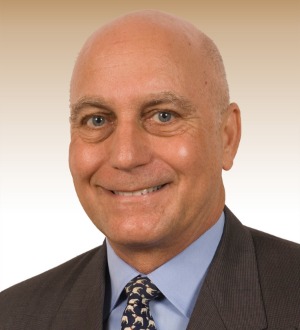Review Your Estate Plan in Light of Tax Act
As of January 1, 2018, the Tax Cuts and Jobs Act (the 2017 Tax Act) doubled the amount of property that a person can gift or pass upon death without incurring estate, gift, or generation-skipping transfer taxes.
The act doubled the amount that would be free of these transfer taxes (the basic exclusion amount) to $11.2 million if single and $22.4 million if married (reduced by prior taxable gifts). That number might change slightly this year, depending on the nation’s inflation rate. These higher amounts will be in force until December 31, 2025, at which time the 2011 basic exclusion amount of $5 million (increased for inflation) will return.
According to the 2016 Internal Revenue Service Data Book, only 3,631 people filed estate tax returns showing estates in excess of $10 million for the year 2015. Therefore, the 2018 basic exclusion amount likely means that most individuals will be able to avoid estate taxes. However, a change in the Presidency and Congress could result in a scaled-back basic exclusion amount well before 2026.
What are the tax consequences if the basic exclusion amount is reduced in the future and a person used the entire basic exclusion amount in 2018? For example, could that person be forced to pay a gift tax if the basic exclusion amount is reduced or can the donor’s estate taxes be increased to take such gifts into account? Most believe such an approach would be unworkable and unfair, but not impossible.
In any case, the steps that should be considered now depend on one’s net worth.
Estates of less than $3.5 million (single) or $7 million (if married)
Those with a net worth of $3.5 million or less (if single) or $7 million or less (if married) (nontaxable estates) can feel reasonably safe that even if a future legislation reduces the basic exclusion amount, they will likely avoid the estate tax as long as they do not experience significant appreciation in their net worth.
Those with nontaxable estates should review their existing estate planning documents to make sure that they do not contain formula provisions that could create an undesirable and unanticipated distribution. For example, some estate plans provide a gift to children or grandchildren of the maximum amount that can pass free of estate taxes. While such a provision may have been appropriate in the past, it could be inappropriate in 2018 when the basic exclusion amount is $11.2 million. The formula gift could result in the children or grandchildren receiving the first $11.2 million and the surviving spouse receiving nothing.
Estates of more than $3.5 million (single) $7 million (married) but less than $30 million
Those with estates of $3.5 million to $30 million (intermediate estates), whether single or married, must determine if they feel comfortable making large gifts now without retaining any rights to receive income or principal from those gifts.
Large lifetime gifts may be difficult for those who have intermediate estates when the donor forfeits the post-gift income and principal. An option, if married, is to make transfers from one spouse to a trust for the other spouse (Spousal Limited Access Trusts or SLATs) in order to significantly reduce potential transfer taxes in the future. For example, consider Marty and Teri who are married and have a combined net worth of $22 million. One option would be for Marty to create a SLAT with $11 million that can provide Teri with all of the SLAT income annually and any additional amount determined by the trustee. Upon the death of Teri, the SLAT assets can be distributed to their children. To replace the assets that would no longer be available to Marty should Teri predecease him, Teri can use some of the distributions she receives from the SLAT to purchase a life insurance policy where the death benefit will be paid to a trust for Marty.
This plan provides Teri with a large trust that is protected from creditors during her lifetime. In addition, Marty and Teri's children can receive large distributions after Teri’s death (either outright or in trust) without having to pay estate taxes. If that plan is appealing, then Teri can consider creating a similar (but not identical) trust for Marty with her assets.
Estates of $30 million and more
Individuals with estates of $30 million and more (larger estates) may be comfortable making gifts of $11.2 million (if single) to $22.4 million (if married) – reduced by prior taxable gifts – without concern that their remaining assets will be sufficient to maintain their accustomed manner of living. The benefits of making such 2018 gifts now include locking in the basic exclusion amount, should it be reduced in the future, and freezing asset values of the gifts to so there are no transfer taxes on future appreciation of those gifted assets to their intended beneficiaries.
Other issues
There are many other issues and questions that must be evaluated. Assets held till death benefit from a “step up” in income tax basis. As a result it can be costly to gift certain appreciated assets before death. Accordingly before any gifts are made with the increased basic exclusion amount, estate tax, asset protection and income tax benefits and drawbacks need consideration.
Because existing documents may contain formula provisions that are no longer viable or effective, and in light of the opportunity to take advantage of the ability to make additional tax-free gifts, now may be a good time to meet with your financial, legal and accounting advisors.
Barry Nelson focuses his practice on trusts and estates as managing partner at Nelson & Nelson, P.A. in North Miami Beach.
* * * *
Disclaimer: This information has been prepared for educational purposes only and is not offered, nor should be construed, as legal advice. Use of this information without careful analysis and review by your attorney, CPA, and/or financial advisor may cause serious adverse consequences. We provide absolutely no warranty or representation of any kind, whether express or implied, concerning the appropriateness or legal sufficiency of this information as to any individual’s tax and related planning.



























